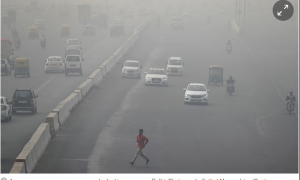中国将提高个人所得税免征额,此举旨在重新分配经济快速增长带来的好处,并缩小日益扩大的财富差距。
The level at which Chinese citizens must pay income tax will be raised from Rmb2,000 ($305) per month to Rmb3,000, the finance ministry said on Wednesday.
中国财政部周三表示,个税免征额将从每月2000元人民币(合305美元)提高至每月3000元人民币。
Raising the threshold to this level will cut the number of taxpayers from about 400m people to 350m and reduce government tax revenue by about Rmb99bn.
免征额提高至每月3000元人民币,将使纳税人数量从4亿人左右降至3.5亿,政府税收收入减少约990亿元人民币。
The change, which is likely to come in the second half of the year, is one of a number of policy initiatives intended to alleviate poverty and reduce growing income disparity.
可能在今年下半年实施的个税调整,是中国为缓解贫困和缩小日益扩大的收入差距而出台的诸多政策举措之一。
Other major policies include a promise to raise average wages by 15 percent a year in order to double average wages by the end of 2015. The government has been increasing statutory minimum wages over the past year and intends to build 35m units of low-income housing over the next five years.
其它主要政策包括:承诺人均薪资水平每年提高15%,以便在2015年末实现翻番。在过去一年里,中国政府一直在提高法定最低工资水平,并打算在未来5年内,为低收入人群建设3500万套住房。
The government also has plans to lift its official poverty line from the current income level of $0.50 per day to $0.63.
中国政府还计划将官方贫困线从当前的日收入0.5美元,提高至日收入0.63美元。
This would more than triple the number of people officially living in poverty from 27m to 100m, all of whom will be entitled to rudimentary but improving government welfare assistance. Even after the change, China’s poverty line will be lower than global benchmarks.
这将使得中国的贫困人口从2700万人增长三倍多至1亿人——所有这些人都将有资格接受基本的、但不断提高的政府福利援助。即使在调整之后,中国的贫困线仍低于全球基准水平。
"The United Nations’ standard for extreme poverty is less than $1.25 and the standard for relatively poor is $2 a day or less,” said Hu Xingdou, professor of economics at the Beijing Institute of Technology.
北京理工大学(Beijing Institute of Technology)经济学教授胡星斗表示:“联合国的极端贫困标准是日收入不足1.25美元,相对贫困标准是日收入2美元以下。”
By the UN’s measure, some 254m Chinese – or 20 percent of the population – still live in extreme poverty.
按照联合国的标准,中国大约有2.54亿人(占总人口的20%)仍生活在极端贫困线以下。







